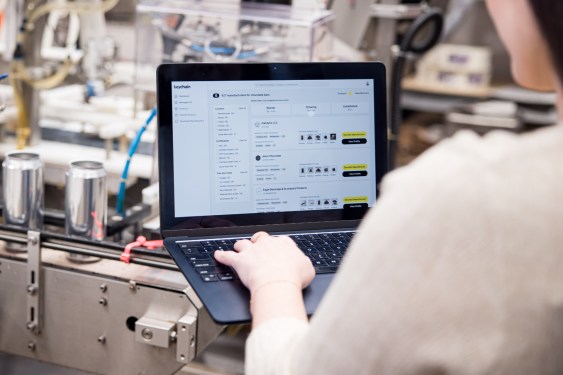Keychain, a U.S. startup, has raised $30 million in fresh funding. The company helps consumer brands find manufacturing partners and will use this new capital to scale its India-based development team to drive growth in North America.
While headquartered in New York, Keychain operates as a distributed company with its core engineering and product development centered in India. The startup is doubling down on this model, aiming to grow its engineering, product design, and analytics teams in Gurugram from 35 to 70 in the coming months, and to around 100 within a year. This India-based team already represents half of Keychain’s 70-person global headcount, with about 20 employees in New York and the remainder in Austin handling partnerships, go-to-market, and sales.
The strategy is deliberate. Despite only serving Western markets, Keychain built its primary development operations in Gurugram, which is the country’s second-largest tech hub after Bengaluru, to develop its consumer packaged goods platform for clients in North America. The software platform already helps eight of the top 10 retailers, including 7-Eleven and Whole Foods, and seven of the top CPG brands, such as General Mills, connect with suitable manufacturers.
According to co-founder and CEO Oisin Hanrahan, the decision to base operations in India was driven by the talent, depth, availability, and the speed with which you can access that talent. Hanrahan co-founded Keychain in 2023 with Umang Dua, his co-founder at Handy, and Jordan Weitz. Dua, who is originally from New Delhi, has been a natural advantage in building Keychain’s core teams in Gurugram.
Both Hanrahan and Dua spent time structuring Keychain’s teams across India and the U.S., ultimately choosing India as the company’s engineering hub. The decision was shaped by their experience at Handy and Angi, where they found it challenging to build a sustainable, enduring engineering team in the U.S. They sought to build a core engineering organization with deep talent pools and AI exposure that could take on important challenges, and India checked all those boxes.
Keychain plans to use its India team to improve its current platform and to build new AI-powered software called KeychainOS that helps manufacturers manage their product cycles more efficiently. The software will have four modules, with the first one already available. This module helps manufacturers comply with food safety requirements by using AI to convert quantitative data into qualitative reports for auditors. The other three modules will focus on purchasing and procurement, inventory, and production planning.
This OS offering will compete with traditional ERP systems like Oracle, QAD, and Plex. In addition to KeychainOS for manufacturers, the company has embedded AI into its search and discovery layer to help retailers quickly find relevant third-party manufacturers.
Keychain already helps brands and retailers find manufacturers in food, beverage, supplements, health, and beauty categories and is looking to expand to pet and household products later this year. The startup currently serves businesses in the U.S. and Canada and is aiming to enter Europe later this year.
While the software is free for brands and retailers, manufacturers pay to access the platform and get discovered. KeychainOS provides them with another reason to engage. The startup already has over 30,000 manufacturers on its platform, with hundreds paying to use it. These customers pay anywhere from $10,000 to over $100,000, with the startup earning around $20,000 per manufacturer annually on average.
Keychain’s Series B round was led by Wellington Management and existing investor BoxGroup, alongside other existing investors. With this funding, the startup has raised $68 million in total. The company had a post-money valuation of $260 million in its last round of $15 million in November 2024. The current valuation was not disclosed but was described as a good step up.

